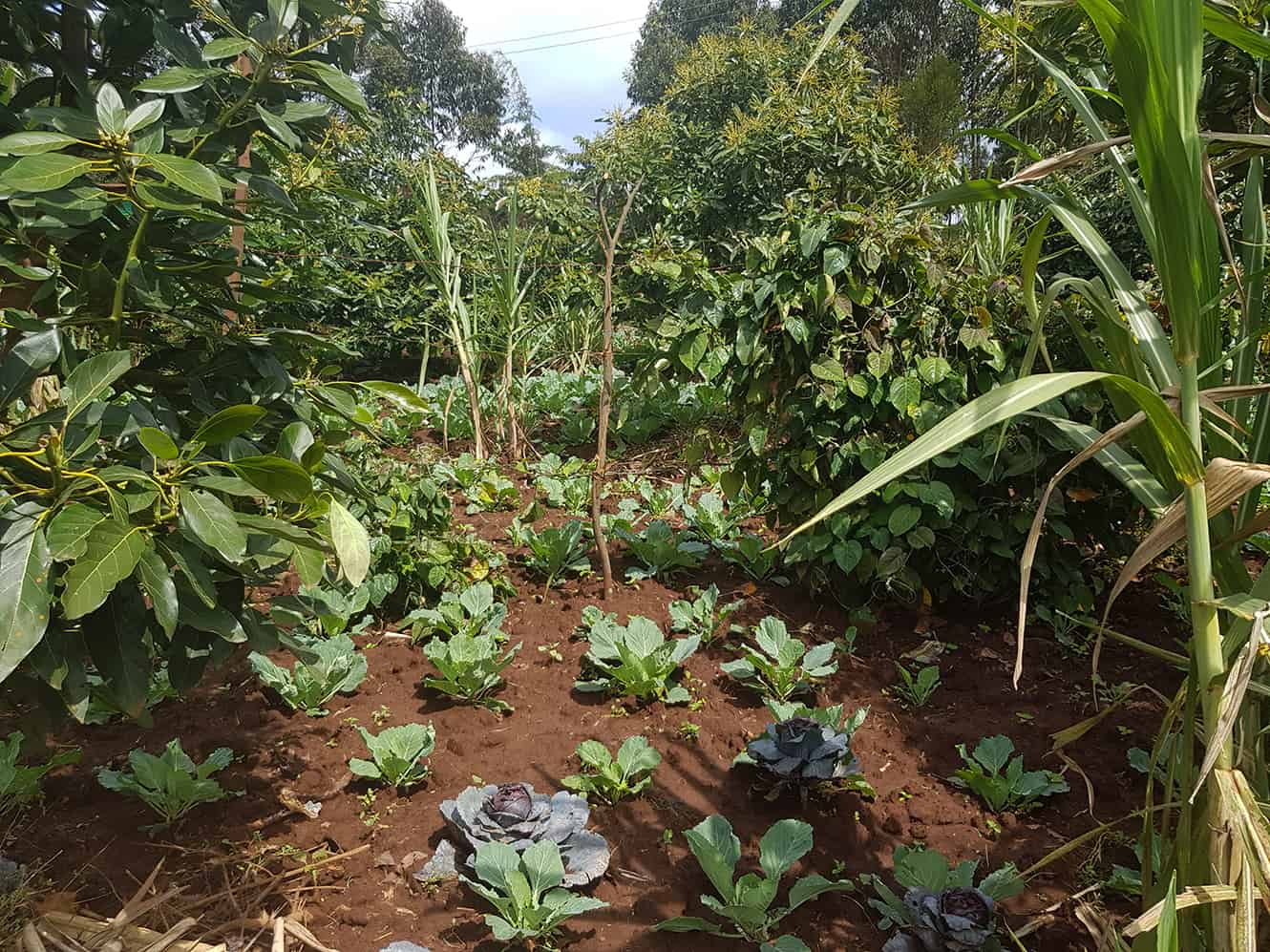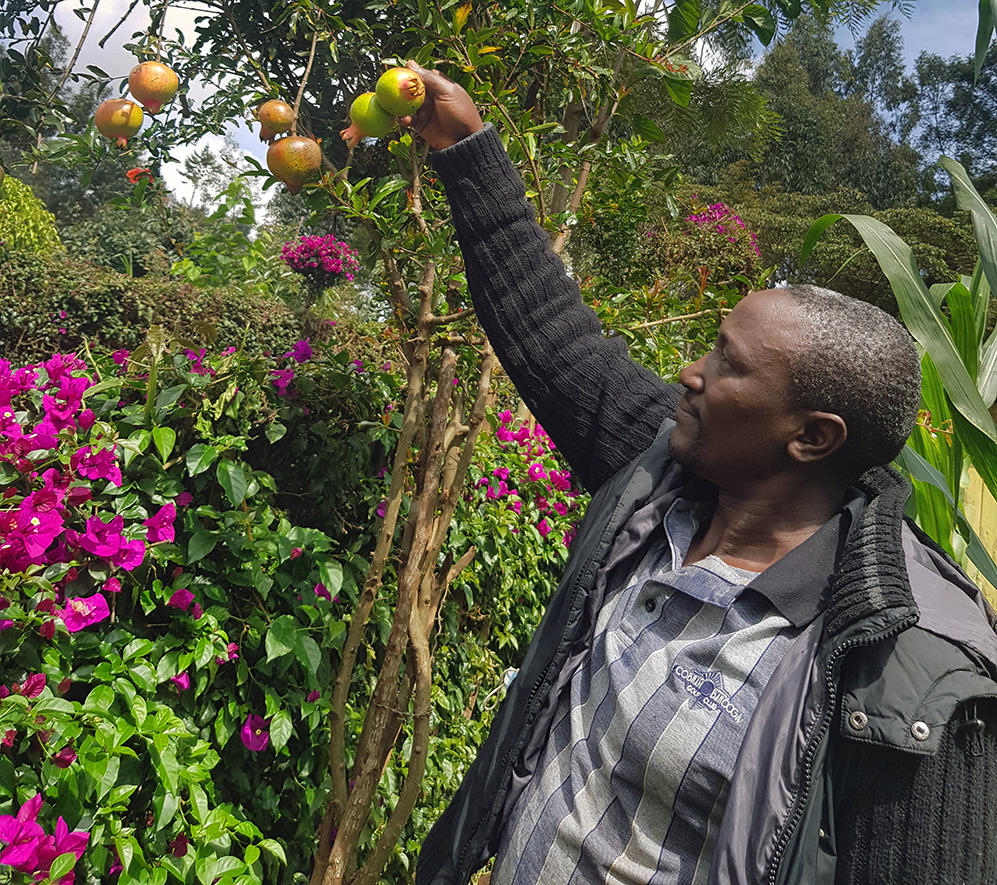
“The Forest Garden Approach presents a rich mine for best practices,” Kinuthia says. “I plant any variety of crop I come across in my Forest Garden and none has failed to yield.”
Thoughtful Training, Strategic Planting
Kinuthia and the other farmers in his group are learning how to protect their land using agroforestry trees and regenerative farming practices. As he naturally repairs his farm land, he is strategically growing more diverse and nutrient-rich foods to eat and sell. The difference is life-changing.
“Within the first year of training, I can say that the Forest Garden has created an impact in my life since my garden is my employer. It feeds and educates my family,” he says. “My Income has transitioned from low to middle income and this motivates me to work even harder, as the future is bright.”
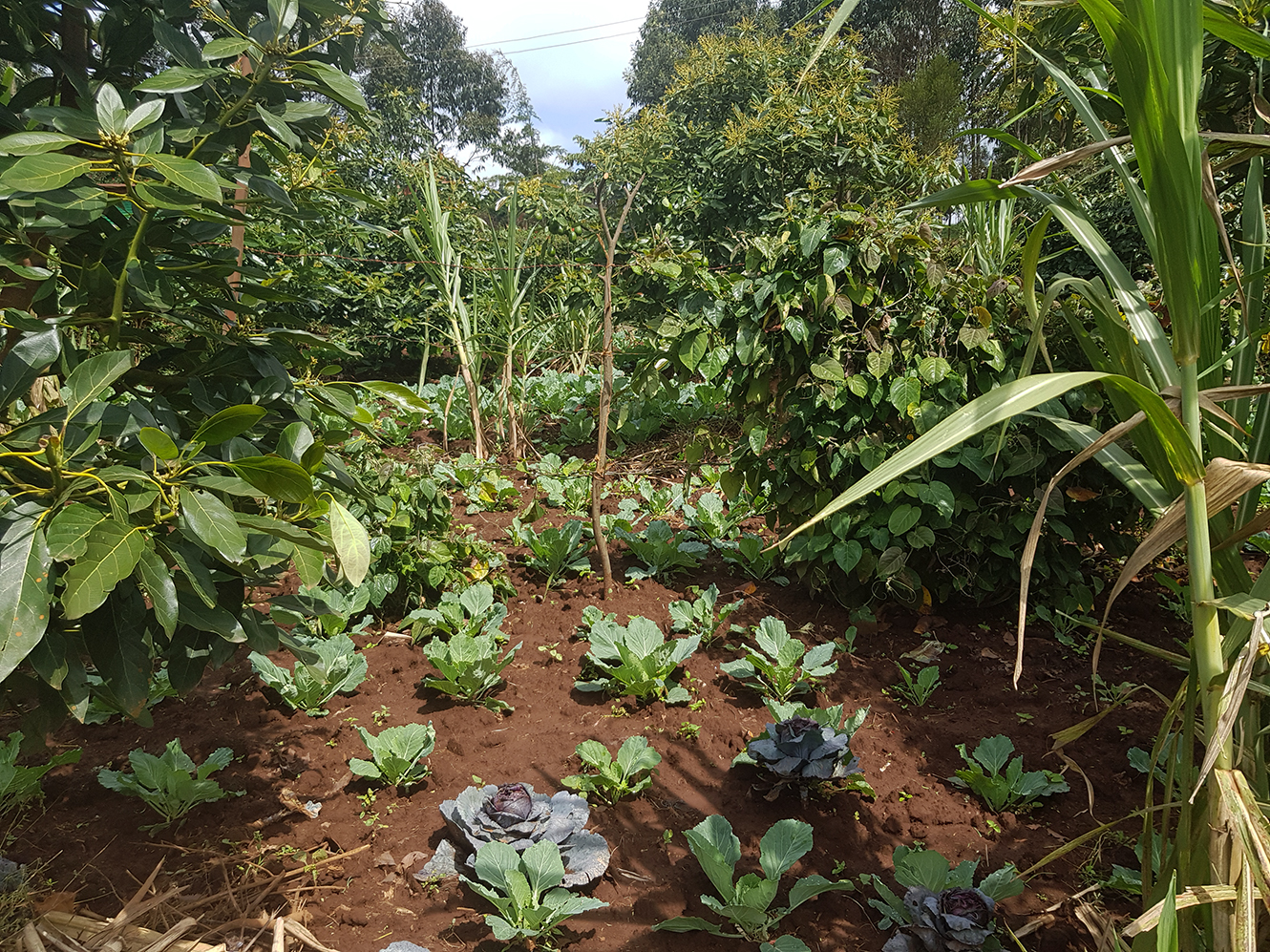
Kinuthia and his wife Virginia have five children. Four of their kids are now enrolled in school thanks to their newfound income. Forest Garden farmers can also use their TREES training to pursue additional streams of income. Kinuthia is known within his farmer group for his grafting skills. He has several grafted avocado trees in his Forest Garden that are regularly producing two types of avocado on one tree.
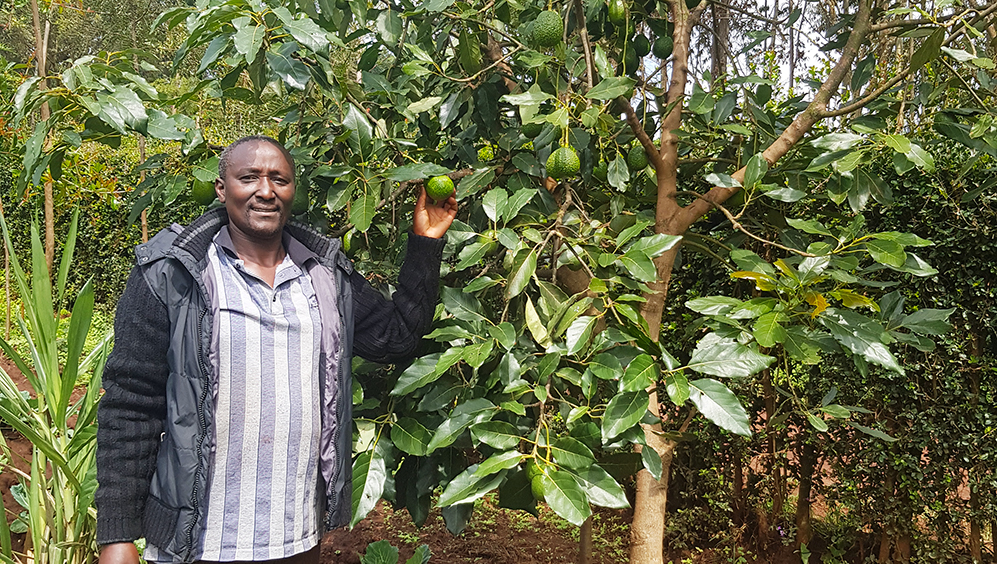
With a ready market for fruit trees in the region, he’s turned his talent into a business opportunity. Kinuthia grafts new fruit trees and sells them to other farmers.
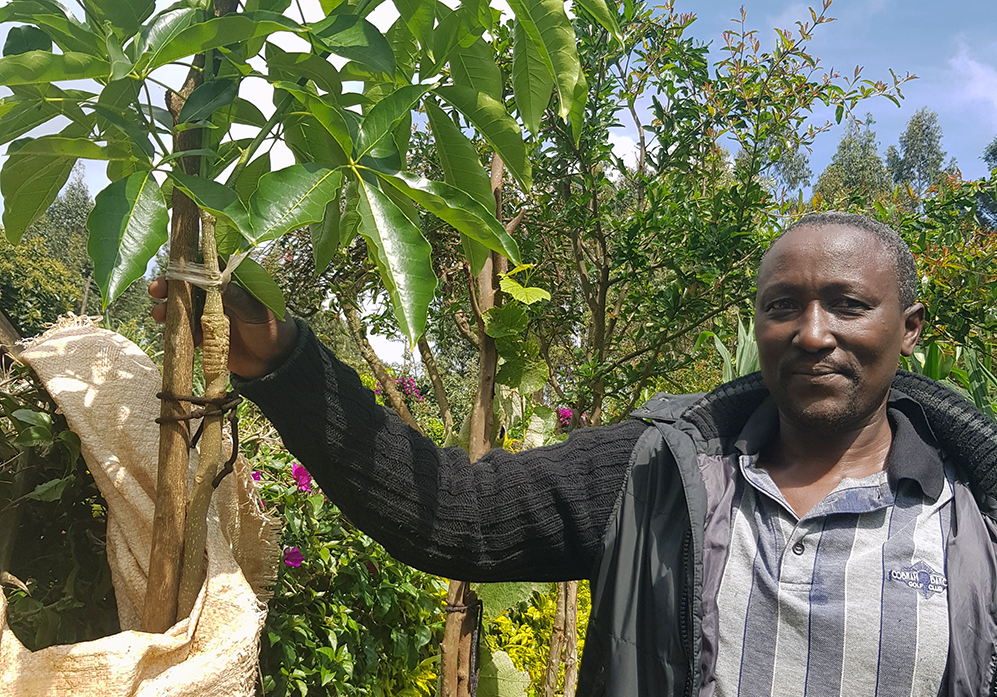
Sustainable Change
The farmer group has three years of training left. TREES staff will continue spending time with the farmers on important skills like water conservation, seed saving, and integrated pest management. Kinuthia says water management techniques have already made a measured difference for him and his family.
“TREES has taught us how to harvest and reuse water, which is a big challenge in the area,” he says. “We have also adopted other farming techniques to help conserve water into the soil.”
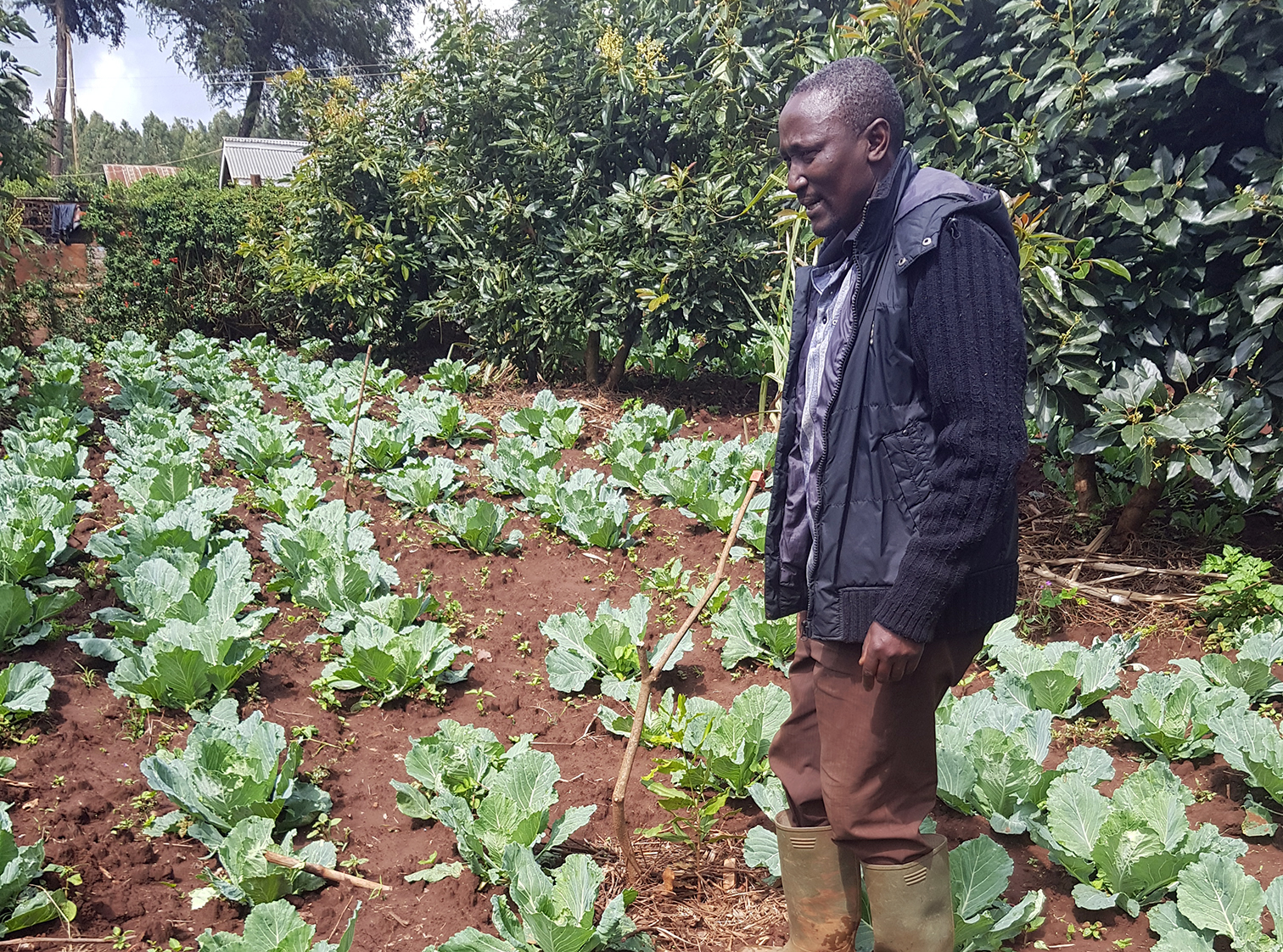
As a lead farmer of his group, Kinuthia is regularly encouraging his neighbors. He says he looks forward to witnessing lives change over the course of the program. Become part of the Forest Garden solution. Make a donation to Trees for the Future and help provide Forest Garden training to farmers like Kinuthia.
